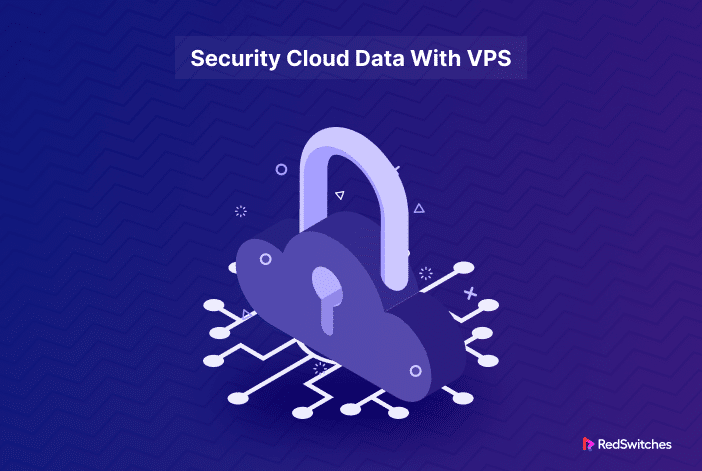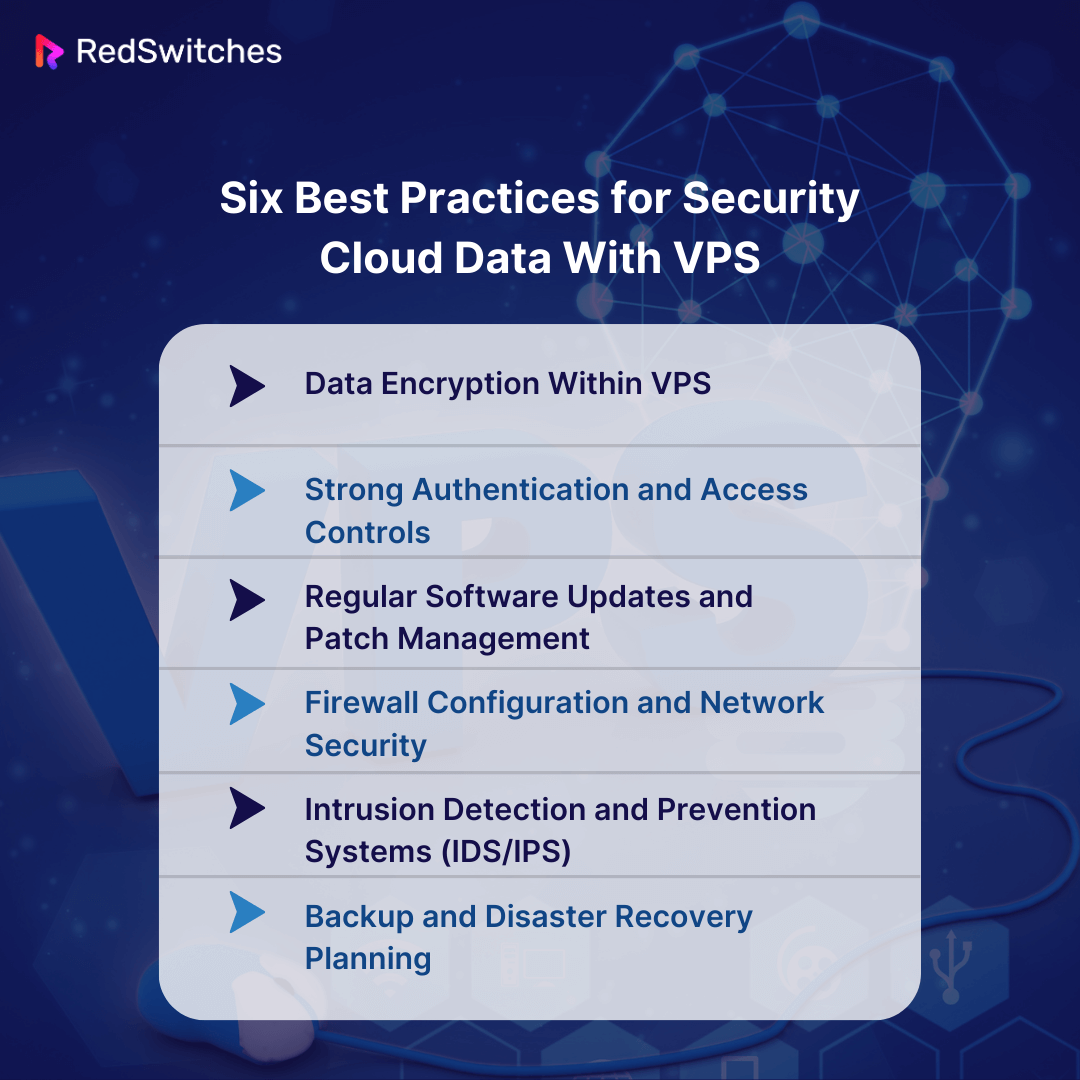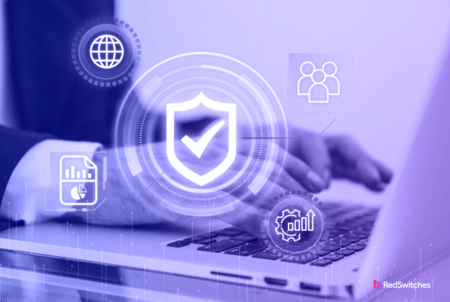Cloud computing is a critical technological development altering how organizations and individuals handle and use data in the quickly developing digital age. This revolutionary transition toward cloud-based solutions has made unlimited flexibility, scalability, and cost-effectiveness possible. However, as businesses take advantage of these benefits, the need to protect classified data in virtual environments, especially on Virtual Private Servers (VPS), has gained prominence.
Although cloud computing has much potential, it also opens up a new set of security issues. The increasing frequency/rate and sophistication of cyber-attacks and data breaches overshadow the potential advantages. Strengthening data protection in cloud environments has become essential as the digital world grows more dangerous.
In this blog article, we will expand the statement security of cloud data with VPS and best practices for Enhanced security.
First, let’s start with the definition of VPS.
Table Of Contents
- Understanding VPS and Its Role in Cloud Data Security
- Six Best Practices for Security of Cloud Data With VPS
- Partnering With RedSwitches for Secure VPS Hosting
- Conclusion
- FAQs
Understanding VPS and Its Role in Cloud Data Security
In the starting section of our blog article, we will start with the basic understanding and definition of VPS.
What Is a Virtual Private Server (VPS)?
A computer that houses all the data and software needed to run an application or website is known as a virtual private server (VPS). It is referred to as virtual since it only uses a small amount of the actual resources below the server, which a third-party provider controls. On that hardware, you can access your allocated resources, though.
A Virtual Private Server (VPS) is a vital building piece that can help improve the overall security posture of a cloud-based infrastructure, playing a significant role in cloud security. A virtual private server (VPS) is a smaller physical server that runs its own operating system, programs, and resources inside a larger server (host).
VPS as a Security Layer for Cloud Data
A Virtual Private Server (VPS) can add an essential layer of security for cloud data. Potential risks can be reduced by installing a VPS between users and the cloud infrastructure so that data transmission can be encrypted and screened.
VPS configurations make it possible to apply firewall rules, intrusion detection systems, and complex security protocols, adding another line of defense against assaults and unauthorized access.
This middle layer also enables specialized monitoring and access controls, boosting data security in transit. Overall, using a VPS as a security intermediary strengthens the security posture and improves the protection of critical cloud data.
Six Best Practices for Security of Cloud Data With VPS
In this section of our blog, we will discuss the core topic of our blog, which is the best practices for security of cloud data with VPS.
Data Encryption Within VPS
A Virtual Private Server (VPS) offers a critical layer of security to safeguard sensitive data through data encryption. All data sent to and stored in the VPS is encrypted using encryption methods like SSL/TLS for communication and AES for data at rest, rendering it inaccessible without the proper decryption keys.
Even if the VPS environment is compromised, this protects the data from potential breaches, eavesdropping, or unauthorized access. The VPS’s implementation of strong encryption techniques guarantees the data’s confidentiality and integrity, enhancing overall security for cloud-based applications and services.
Strong Authentication and Access Controls
Protecting the secretiveness and integrity of the hosted resources requires implementing robust authentication procedures for VPS access. Traditional password-based authentication is susceptible to attacks like credential stuffing or brute force.
Strong authentication techniques that require users to submit multiple pieces of identification proof, such as multi-factor authentication (MFA) or biometric verification, significantly improve security.
Even if bad actors successfully obtain a password, it becomes far more difficult for them to get unauthorized access with this strategy. Strong authentication offers protection against phishing scams and password breaches and reduces the danger of unauthorized entry.
Regular Software Updates and Patch Management
To keep a VPS secure, keep up with software updates and security patches. This fixes vulnerabilities and enhances performance and stability.
Continuous software updates and patch management are essential for averting cyberattacks for several reasons, one of which is that they fix known security flaws in software. Hackers frequently use these weaknesses to enter a company’s systems and take private data.
Organizations may fix these flaws and make it much harder for hackers to infiltrate their systems by routinely updating and patching their software.
Regular software updation and patch management are essential since they help guarantee that an organization’s systems are running the most recent version of the program.
Software developers frequently include new features, enhancements, and security updates in new releases of their products.
Firewall Configuration and Network Security
By decreasing the amount of traffic entering and leaving your VPS, firewalls are essential for keeping it safe. You can limit access to particular ports, services, and IP addresses by configuring firewall rules on a Leaseweb VPS.
Ensure that your VPS only has the services it needs by limiting the number of open ports. The attack surface is reduced, and unauthorized access is less likely when unused ports are closed.
To further improve the security of your VPS, use firewall filtering to examine network traffic and stop dangerous data packets.
Intrusion Detection and Prevention Systems (IDS/IPS)
Monitoring your network data and examining it for indications of potential intrusions, such as exploit attempts and occurrences that might pose an immediate threat to your network, is the process of intrusion detection.
The process of doing intrusion detection and then stopping the identified instances is known as intrusion prevention, and it usually entails discarding packets or ending connections.
These security measures are accessible as intrusion detection systems (IDS) and intrusion prevention systems (IPS), which are features of next-generation firewalls (NGFW) and are a part of network security measures intended to detect and halt future occurrences.
Backup and Disaster Recovery Planning
Examples of backup and disaster recovery include regularly making or updating extra copies of files, storing them in multiple locations, and using those copies to continue or restart business operations in the circumstance of data loss due to fire damage, data corruption, a cyberattack, or a natural disaster.
Backup and disaster recovery, two separate procedures, are occasionally confused with one another or the whole process. Making file copies is the process of performing a backup.
Disaster recovery is the strategy and procedures used to quickly restore access to data, applications, and IT resources following an outage. That approach may need changing to a redundant server set of servers and storage devices to maintain functionality while your primary data center is being repaired.
Conclusion
The critical function of Virtual Private Servers (VPS) in strengthening cloud data security was explored in this article. In this article, we discussed security of cloud data with VPS. VPS provides a solid solution for protecting sensitive information by isolating resources and offering dedicated environments.
Investigating the six best practices for protecting cloud data with VPS highlights the significance of preventative measures such as consistent upgrades, robust authentication, data encryption, and close monitoring. As companies continue to use cloud computing, incorporating VPS into their security plans can give them a strong foundation for risk mitigation and guaranteeing the confidentiality and integrity of sensitive data.
RedSwitches offers the best dedicated server pricing and delivers instant dedicated servers, usually on the same day the order gets approved. Whether you need a dedicated server, a traffic-friendly 10Gbps dedicated server, or a powerful bare metal server, we are your trusted hosting partner.
Partnering With RedSwitches for Secure VPS Hosting
Partnering with RedSwitches for secure VPS hosting provides a solid option supported by our track record for imposing stringent security controls. We ensure a secure online environment by concentrating on protecting your data with firewalls, encryption, and frequent audits.
Our dedication to uptime, round-the-clock assistance, and scalable solutions aligns with our company’s expansion and technical requirements. We can offer our clients a dependable and high-performance hosting experience while protecting the privacy of their data by utilizing RedSwitches’ expertise.
FAQs
Q-1) What is security of cloud data with VPS?
Using Virtual Private Servers to increase the security and confidentiality of data stored and processed in cloud settings is known as cloud data security with VPS.
Q-2) Can VPS guard against cloud data breaches?
VPS can greatly lower the risk of data breaches by offering separated environments, limiting access, and enabling granular security controls, even though it is not completely infallible.
Q-3) Are all sizes of organizations eligible for VPS?
VPS solutions offer scalable and adjustable security protections for cloud-stored data and may be customized to meet the demands of small, medium, and big enterprises.



